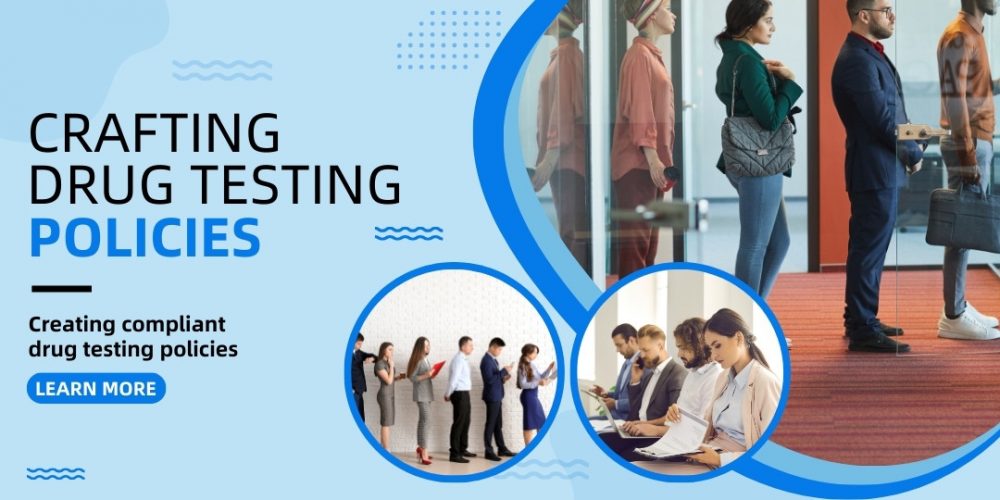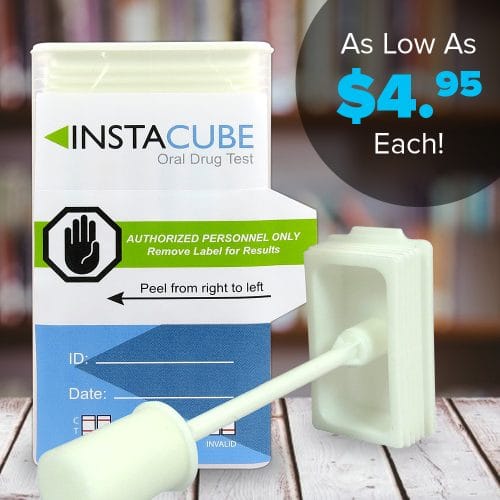Developing a drug testing policy that complies with laws, regulations, and industry standards is crucial for organizations to maintain a safe and productive work environment. This guide will walk you through the key steps to ensure your drug testing policies are effective, fair, and legally compliant.
1. Understand the Legal Framework
The first step in creating a compliant drug testing policy is to understand the relevant legal requirements. These can vary based on:
- Federal Laws: Ensure compliance with laws such as the Drug-Free Workplace Act, especially if your organization receives federal contracts or grants.
- State Laws: Each state has different regulations regarding drug testing, including permissible testing methods, employee consent, and privacy rights.
- Local Regulations: Be aware of any local ordinances that may impose additional requirements or restrictions.
Consult with legal counsel to understand the specific legal landscape your organization operates within.
2. Align with Industry Standards
Different industries have unique standards and best practices for drug testing. For instance:
- Transportation: The Department of Transportation (DOT) has stringent drug and alcohol testing regulations for safety-sensitive employees.
- Healthcare: Healthcare organizations must comply with regulations that ensure patient safety and care quality.
- Construction: The construction industry often follows specific safety and drug testing protocols to prevent workplace accidents.
Research industry-specific guidelines and incorporate them into your policy to ensure compliance and best practices.
3. Consult Insurance Policies
Insurance providers often have requirements for drug testing policies as part of their coverage conditions. Review your organization’s insurance policies to:
- Identify any mandatory drug testing procedures.
- Understand the consequences of non-compliance with these requirements.
- Ensure that your policy aligns with the terms of your insurance coverage.
4. Define the Scope and Objectives
Clearly define the scope and objectives of your drug testing policy. Consider the following:
- Who will be tested: Determine which employees will be subject to testing (e.g., all employees, safety-sensitive positions, new hires).
- Types of tests: Decide on the types of drug tests to be conducted (e.g., pre-employment, random, post-accident, reasonable suspicion).
- Substances tested: Specify the substances for which employees will be tested (e.g., common illicit drugs, prescription medications, alcohol).
Ensure that these definitions align with legal requirements and industry standards.
5. Establish Clear Procedures
Develop clear procedures for implementing the drug testing policy. This should include:
- Testing Methods: Outline the methods to be used (e.g., urine, hair, saliva tests) and the protocols for sample collection and handling.
- Confidentiality: Ensure the confidentiality of test results and the privacy of employees.
- Notification and Consent: Detail how employees will be notified about testing requirements and how their consent will be obtained.
- Consequences of Violation: Clearly state the consequences of a positive test result or refusal to undergo testing, including disciplinary actions and support options (e.g., Employee Assistance Programs).
6. Train and Educate Employees
Training and education are critical for the successful implementation of a drug testing policy. Provide training sessions for:
- Supervisors and Managers: Train them on recognizing signs of substance abuse, conducting reasonable suspicion testing, and handling test results.
- Employees: Educate employees on the policy’s objectives, procedures, their rights, and the consequences of policy violations.
7. Regularly Review and Update the Policy
Laws, regulations, and industry standards can change over time. Regularly review and update your drug testing policy to ensure ongoing compliance. Consider:
- Annual Reviews: Conduct annual reviews to assess the policy’s effectiveness and make necessary adjustments.
- Legal Updates: Stay informed about changes in relevant laws and regulations and update the policy accordingly.
- Employee Feedback: Gather feedback from employees to identify any issues or areas for improvement.
Example: Crafting Drug Testing Policies in the Healthcare Industry
In the healthcare industry, ensuring a drug-free workplace is crucial for patient safety and care quality. A healthcare organization should start by understanding federal regulations, such as those from the Department of Health and Human Services (HHS) and the Drug-Free Workplace Act, which mandate specific drug testing protocols for healthcare providers. Additionally, state laws will dictate further requirements, including permissible testing methods and employee privacy rights. The organization should consult with legal counsel to navigate these regulations, ensuring that their policies are comprehensive and compliant. This includes reviewing insurance policies to meet coverage conditions, such as mandatory pre-employment and random testing for clinical staff. Once the legal framework is established, the organization should define the scope of testing, such as focusing on employees in patient care roles, and detail the types of substances tested (e.g., opioids, benzodiazepines). Clear procedures for sample collection, confidentiality, and handling positive results must be outlined. To promote the policies internally, the organization should conduct training sessions for supervisors on recognizing substance abuse signs and implementing the policy, while educating employees on their rights, the testing process, and the support available through Employee Assistance Programs. Regular reviews and updates, based on feedback and changes in regulations, will ensure the policy remains effective and compliant.
Creating a drug testing policy that is compliant with applicable laws, regulations, and standards requires a thorough understanding of the legal landscape, alignment with industry best practices, and clear procedures. By following these steps, your organization can develop a fair, effective, and legally sound drug testing policy that promotes a safe and productive work environment. Regular reviews and updates will ensure that your policy remains relevant and compliant with evolving requirements.



